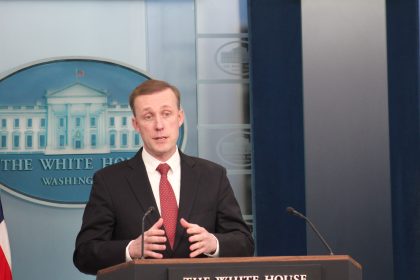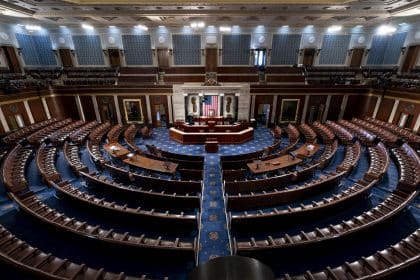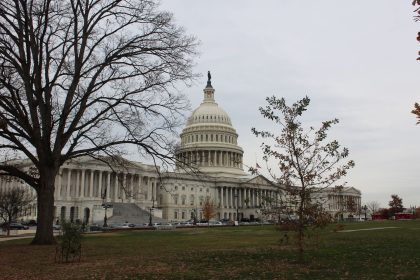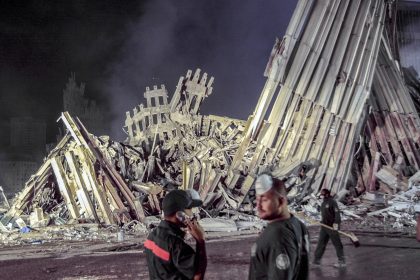Garland Sets New Rules for DOJ’s Use of State Secrets Privilege
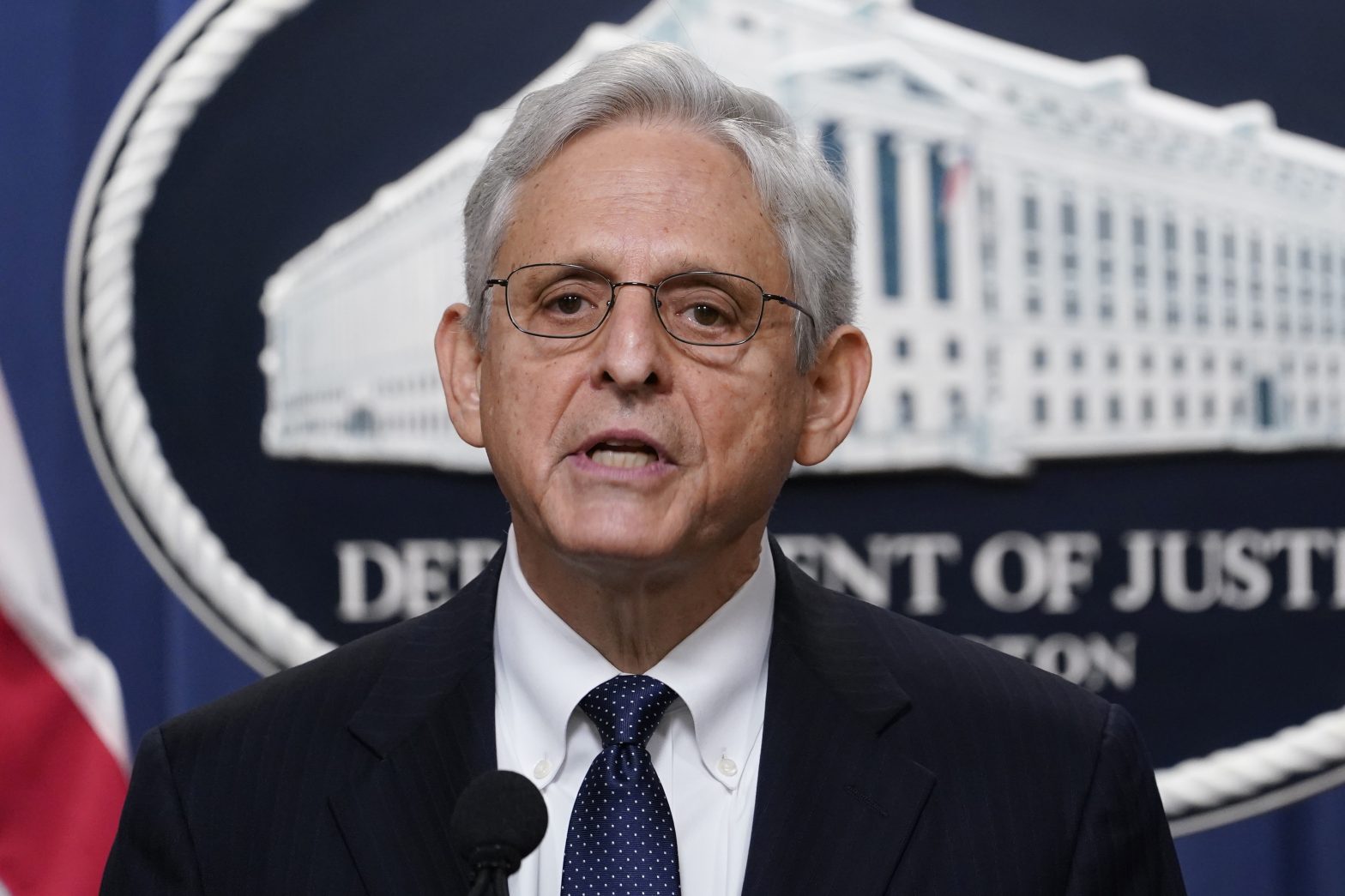
WASHINGTON — Attorney General Merrick Garland on Friday imposed a new set of rules Justice Department officials will have to follow to invoke the state secrets privilege in litigation in the name of protecting national security.
In a memo sent to the heads of all DOJ divisions and executive agencies, Garland said he will henceforth require them to submit a personal declaration laying out specifically why the privilege is needed.
If the declaration is not sufficiently detailed or based on the department or agency head’s limited personal knowledge, “it must be accompanied by, and incorporate consideration of, a more detailed declaration based on personal knowledge by a subject-matter or classification expert from the department or agency,” he wrote.
Until Friday, agencies had to submit a formal declaration to the head of the DOJ division leading the litigation, but the leader of the agency was not required to be part of the process.
But that’s not the only procedural change Garland had in mind as he wrote to his division chiefs.
The attorney general also wants the agency requesting the privilege and the DOJ division leading the case to confirm at “appropriate intervals throughout the pendency of the litigation” that the privilege remains necessary to protect national security.
If a case involving the privilege is appealed or is elevated to the U.S. Supreme Court, the new policy mandates that the assistant attorney general or solicitor general supervising the litigation confirm with the agency that the privilege remains appropriate.
A Justice Department spokesperson said Friday that the changes by Garland to existing policies dating back to the Obama administration were not tied to any specific pending case, but instead were intended as a routine departmental update on the issue.
Garland himself explained his rationale in the opening paragraph of the memo in which he wrote, “the Department of Justice is committed to ensuring that the United States invokes the state secrets privilege only when genuine and significant harm to national defense or foreign relations is at stake and only to the extent necessary to safeguard those interests.”
He added that restraints are necessary to provide “greater accountability and reliability in the invocation of the privilege.”
The government uses the state secrets privilege to withhold certain records it claims could harm national defense or affect the government’s ability to carry out foreign relations.
In some instances, the department has even gone so far as to request the outright dismissal of cases citing the privilege as the reason for its doing so.
Although the state secrets privilege has existed in some form since the early 19th century, its modern use, and the modern rules governing its invocation, derive from the landmark Supreme Court case United States v. Reynolds from 1953.
A backgrounder on the state secrets privilege published by the American Civil Liberties Union recounts that Reynolds started as a wrongful death action against the government filed by the widows of three civilians who died in the crash of a military plane in Waycross, Georgia.
In response to their request for the accident report, the government insisted the report could not be disclosed because it contained information about secret military equipment that was being tested aboard the B-29 Superfortress during the fatal flight.
When the accident report was finally declassified in 2004, it contained no details whatsoever about secret equipment. According to the ACLU, the government’s true motivation in asserting the state secrets privilege was to cover up its own negligence.
But the case did serve to make the state secrets privilege a judicially recognized extension of presidential power and it set a standard that held for decades — that information could be withheld whenever there was “reasonable danger” of exposing information that should not be divulged for national security reasons.
Reliance on the privilege became both more common and more controversial during the George W. Bush administration, when the government invoked it to block lawsuits by people who claimed that they had been illegally wiretapped or tortured as part of the government’s counterterrorism efforts.
Former Attorney General Eric Holder’s policy, announced in the fall of 2009, mandated that military and intelligence agencies get the attorney general’s personal approval if they wanted to assert the privilege.
“The department is adopting these policies and procedures to strengthen public confidence that the U.S. government will invoke the privilege in court only when genuine and significant harm to national defense or foreign relations is at stake and only to the extent necessary to safeguard those interests,” Holder wrote at the time, as reported by The New York Times.
Under Holder’s policy, if an agency like the National Security Agency or the Central Intelligence Agency wanted to block evidence or a lawsuit on state secrets grounds, it would present an evidentiary memorandum describing its reasons to the assistant attorney general for the division handling the lawsuit in question.
If that official recommended approving the request, it would be sent on to a review committee made up of high-level Justice Department officials, and then to the attorney general and the deputy attorney general.
All those officials would be charged with deciding whether the disclosure of information would risk “significant harm” to national security, and they would be instructed to seek a way to avoid shutting down the entire lawsuit if possible.
If the Justice Department signed off on asserting the privilege, the head of the agency controlling the information would sign a classified memorandum to be filed with a court explaining in detail the government’s reasoning. A judge could request access to particular pieces of underlying evidence.
The policy was silent on whether the government would comply, and officials said such requests would be evaluated on a case-by-case basis.
The new policy would also direct the Justice Department to reject a request to use the privilege if officials decide the motivation for doing so is to “conceal violations of the law, inefficiency or administrative error” or to “prevent embarrassment,” The New York Times reported.
In recent years the state secrets privilege has been at the center of a legal dispute between the families of 9/11 victims and the U.S. government over the families’ seeking information about possible connections between the Saudi government and the hijackers who attacked the World Trade Center and the Pentagon.
Though former President Donald Trump initially said he supported the families, Attorney General William Barr later involved the privilege, maintaining disclosure of that information would pose a threat to national security.
In August 2021, the Biden administration, under pressure from the same 9/11 families, announced it intended to disclose some of the long-classified documents the families had wanted to see.
In a court filing at the time, the Justice Department said that the FBI had recently closed a portion of its investigation into the terrorist attacks and was beginning a review of documents that it had previously said must remain secret with an eye toward disclosing more of them.
“The FBI has decided to review its prior privilege assertions to identify additional information appropriate for disclosure,” the department said in a letter to two federal judges in Manhattan overseeing the case. “The FBI will disclose such information on a rolling basis as expeditiously as possible.”
Dan can be reached at [email protected] and @DanMcCue


















